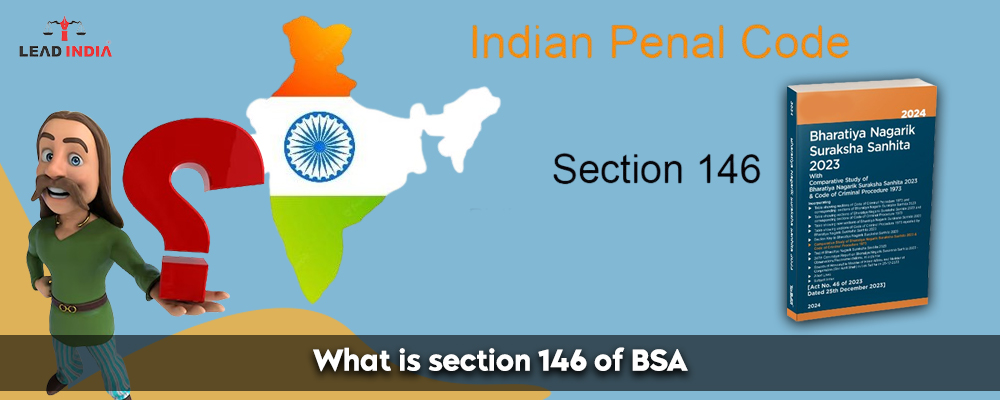The Bharatiya Sakshya Adhiniyam addresses leading inquiries under Section 146. A leading question is one that gives away the answer or forces a witness to say something. It’s an inquiry meant to nudge or persuade a witness into providing a certain response.
Leading Questions: What are they?
- Leading questions are ones that imply to the witness the desired response for the one asking them.
- Although leading questions are normally forbidden, they are permitted during a witness’s cross-examination and during the examination of a declared hostile witness.
- Essentially, leading questions are those that direct or compel the witness to provide a particular response, frequently indicating the intended response.
- They are normally not allowed during the examination-in-chief, which is the first round of questioning a witness by the party that summoned them, but they are allowed under specific conditions, like during cross-examination or if the party who called the witness declares the witness hostile.
Section 146 of BSA: Example
- During the cross-examination of a crucial witness in the case of “State v. ABC,” multiple leading questions from the defense attorney implied that the witness was involved in the crime. Because these inquiries hinted at the answer and would have influenced the witness’s testimony, the prosecution objected, citing Section 146 of BSA.
- The section’s crucial function in guaranteeing objective and uninfluenced witness testimony was highlighted by the judge’s decision that the questions were in fact leading and could not be asked during direct examination.
- This clause aims to protect witnesses from being coerced or led by leading questions and to guarantee that they testify freely and honestly. It also aims to stop anyone from twisting a witness’s testimony to support their position.
Need A Legal Advice
The internet is not a lawyer and neither are you. Talk to a real lawyer about your legal issue

Section 146 of Bharatiya Sakshya Adhiniyam: Essentials
- Adverse Party’s Objection: If the adverse party is against leading questions being asked during a main or re-examination, the court must provide its approval before the questions can be asked.
- Court permission: The court has the power to permit or prohibit the asking of leading questions. The party wishing to pose leading questions must first get the court’s approval if the other party objects.
Leading Questions Under Different Cases
Criminal Cases
- Non-leading question: Could you provide a description of what you saw at the scene?
- Leading question: Is it accurate to say that you witnessed the accused person at the crime scene at around midnight?
Civil Cases
- Non-leading question: Could you please elucidate the circumstances surrounding the contract’s termination?
- Leading question: Did the other party’s breach of contract compel you to end the arrangement?
Hostile Witness Situation Case
- Non-leading question: Do you remember all that was discussed with the plaintiff?
- Leading question: Is it accurate to say that you were uncooperative when speaking with the plaintiff?
Asking Leading Questions: Perks
- To Lead into a Certain Direction: Not all forms of questioning end with a clear direction, even if they all entail asking questions. Aiming for a goal and then posing questions in a way that guides the answer in that specific direction is known as leading. Only by asking leading questions instead of generic, aimless queries will this be accomplished.
- To Persuade the Respondent: Frequently, the person answering the apologist is unwilling to accept the truth or is not convinced of it. The issues at hand are frequently so intricate that the opponent cannot see them unless he is made to follow his line of reasoning and deduction step-by-step. Other times, the respondent’s determination to suppress the truth is so strong that unless he is made to think step-by-step, he cannot reach the correct conclusion. The apologist can only push the opposition to take the necessary steps to find the truth by asking leading questions.
The primary goal of a cross-examination by the court is to confirm the facts and reach a reasonable and equitable decision based on the evidence. Leading questions are used by the prosecution to elicit the truth from the witness when they believe he is not providing sincere and realistic replies.
One can talk to lawyers from Lead India for any kind of legal support. In India, free legal advice online can be obtained at Lead India. Along with receiving free legal advice online, one can also ask questions to the experts online free through Lead India.





 Talk to a Lawyer
Talk to a Lawyer